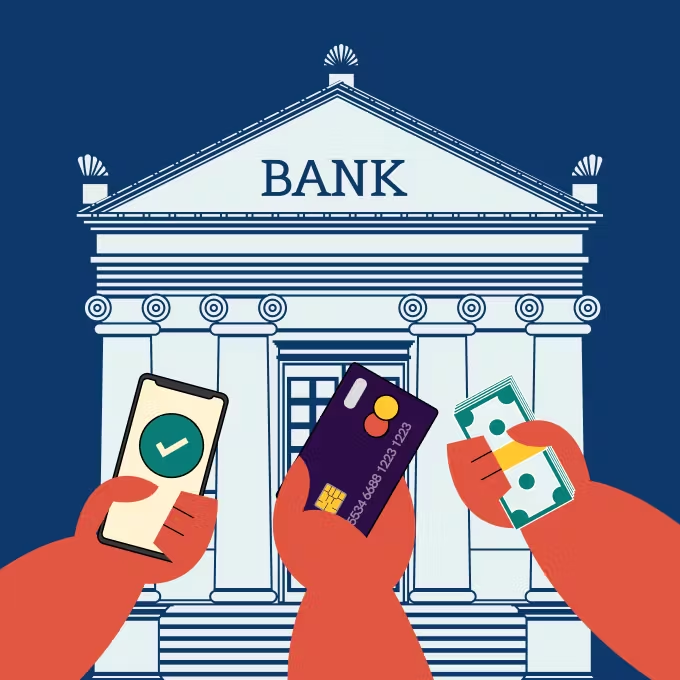How to Avoid Common Bank Fees
Bank fees can quietly erode your savings and cause financial strain if left unchecked. These fees often seem small but can add up significantly over time. Learning how to avoid common bank fees is a practical step toward better money management. Whether it’s ATM charges, overdraft penalties, or monthly maintenance fees, there are proven strategies to help you keep your hard-earned money. For more tips and insights, explore resources like https://betsays.com/fenix-internet-llc/ to stay informed.
Understanding Monthly Maintenance Fees
Monthly maintenance fees are charges that banks apply for maintaining your account. They often range between $5 and $25, depending on the account type. These fees can feel unavoidable, but many banks provide ways to waive them.
How to Avoid Monthly Maintenance Fees
- Maintain Minimum Balance: Most banks waive this fee if you keep a specified minimum balance in your account.
- Direct Deposit Benefits: Setting up direct deposits often eliminates maintenance fees. Check your bank’s policy on qualifying deposits.
- Opt for No-Fee Accounts: Many online banks or credit unions offer no-fee checking or savings accounts. Explore these options if traditional banks don’t meet your needs.
ATM Fees and Their Impact
ATM fees are common when you withdraw cash from out-of-network ATMs. Each transaction can cost $3 to $5, which quickly adds up if you frequently need cash.
How to Avoid ATM Fees
- Stick to In-Network ATMs: Use ATMs affiliated with your bank. Many banks offer a network of fee-free ATMs.
- Reimbursement Programs: Some banks reimburse fees incurred from using out-of-network ATMs. Consider switching to a bank with this feature.
- Plan Withdrawals: Withdraw cash in larger amounts less frequently to minimize transactions.
- Read more about : https://betsays.com/
The Cost of Overdraft Fees
Overdraft fees occur when you spend more money than you have in your account. These charges average around $35 per overdraft, making them one of the most expensive banking fees.
How to Avoid Overdraft Fees
- Track Your Account Balance: Regularly monitor your account balance through your bank’s app or online portal.
- Set Up Alerts: Many banks offer low-balance alerts to notify you before you overdraw your account.
- Opt-Out of Overdraft Protection: Declining overdraft protection ensures transactions are declined when insufficient funds are available, saving you from unnecessary fees.
Nonsufficient Funds (NSF) Fees Explained
NSF fees are similar to overdraft fees, charged when a payment or transaction is rejected due to insufficient funds. These fees can be as costly as overdraft charges.
How to Avoid NSF Fees
- Keep a Spending Cushion: Maintain a small buffer in your account to cover unexpected expenses.
- Monitor Pending Transactions: Always account for pending transactions, as they may not immediately reflect in your balance.
Paper Statement Fees and How to Save
Paper statements might seem old-fashioned, but they can come with added costs. Banks often charge a fee of $2 or more per statement for mailing them.
How to Avoid Paper Statement Fees
- Switch to E-Statements: Sign up for electronic statements through your bank’s online platform. They’re not only free but also environmentally friendly.
- Download and Store Statements: Save digital copies regularly to ensure you have access to your records.
Inactivity Fees: A Hidden Cost
If your account remains dormant for a specific period, banks may impose inactivity fees. These fees range from $5 to $20 monthly, depending on the bank.
How to Avoid Inactivity Fees
- Make Regular Transactions: Even small deposits or withdrawals can prevent inactivity fees.
- Set Up Automatic Payments: Use your account for automated bill payments or subscriptions.
- Consolidate Accounts: If you rarely use certain accounts, consider closing them to avoid unnecessary charges.
Wire Transfer Fees: Domestic and International
Wire transfers are a secure way to send money, but they come at a cost. Domestic transfers can cost $15 to $30, while international ones may exceed $50.
How to Avoid Wire Transfer Fees
- Use ACH Transfers: Automated Clearing House (ACH) transfers are often free or much cheaper than wire transfers.
- Consider Peer-to-Peer Platforms: Services like Zelle or Venmo are cost-effective alternatives for sending money.
Foreign Transaction Fees for Travelers
If you use your debit or credit card abroad, foreign transaction fees can quickly add up. These charges typically range from 1% to 3% of the purchase amount.
How to Avoid Foreign Transaction Fees
- Choose Travel-Friendly Accounts: Opt for a bank or credit card that offers no foreign transaction fees.
- Withdraw in Local Currency: Use local ATMs to avoid dynamic currency conversion charges.
- Plan Ahead: Research the best cards or accounts for international use before traveling.
Proactive Tips to Avoid Bank Fees
Research Bank Policies
Before opening an account, review the bank’s fee structure. Choose accounts that align with your financial habits.
Leverage Mobile Banking
Use mobile apps to monitor your transactions, balances, and pending charges. Staying informed helps you avoid fees.
Communicate with Your Bank
Reach out to your bank if a fee is charged. In some cases, they may waive it, especially if you’re a loyal customer.
Consolidate Your Banking Needs
Consider simplifying your finances by reducing the number of accounts you hold. Fewer accounts mean fewer potential fees.
Stay Organized
Set reminders for due dates and minimum balance requirements. This prevents unnecessary charges like late payment fees.
Conclusion
Avoiding common bank fees requires vigilance and proactive measures. By understanding how these fees work and taking steps like monitoring your accounts, setting up direct deposits, and choosing the right bank, you can minimize or even eliminate these costs. Ultimately, the money saved from avoiding fees can be better used toward your financial goals. Just like The Timeless Appeal of Leather Strap Watches, managing your finances with care and precision reflects lasting value and style. Always remember, every dollar saved is a step toward better financial health.






